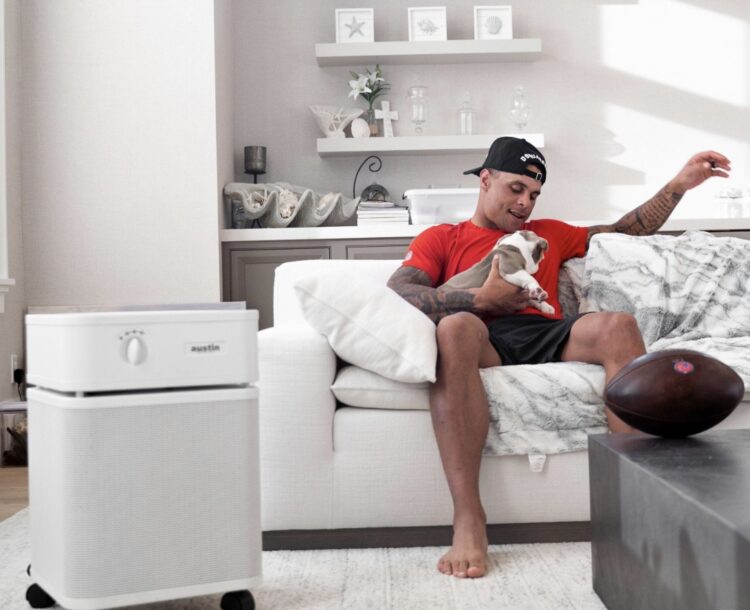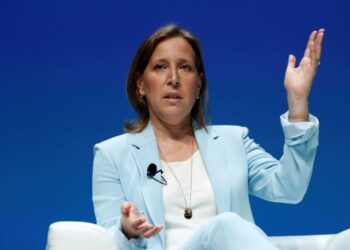In March, the Biden administration unveiled the “National COVID-19 Preparedness Plan” that includes a “Clean Air in Buildings Checklist” set forth by the EPA to help buildings improve ventilation and air filtration. The administration also announced a nationwide “Clean Air in Buildings Challenge” that will recognize those who implement the checklist and thereby improve air quality and ventilation. $350 billion will be provided to state and local governments and an extra $130 billion will be provided to schools to help finance air quality upgrades.
Schools are using ELC funding from the CDC to purchase air purifiers for classrooms. Through ELC’s Cooperative Agreement, all 50 states, several large metro areas, and U.S. territories and affiliates receive direct financial support to detect, respond to, control, and prevent infectious diseases. These funds were made available through an “opt-out” grant and must be used by July 31, 2022.
Given the amount of funding available, the EPA published a review on the available air filtration technologies, stating, “HEPA (rated) and activated carbon sorbent media filters have generally shown to be the most effective.”
Austin Air Systems – the gold standard for air purification for more than three decades – echoes this guidance. “We were the first in the industry to produce portable air purifiers that use true medical grade HEPA and activated carbon,” says Lauren McMillan, President of Austin Air. “And this combination effectively removes the widest range of airborne pollutants, including viruses, allergens, dust, bacteria, gasses, and chemicals.” In fact, the medical grade HEPA used by Austin is proven to remove up to 99% of airborne viruses that are 0.1 microns and larger. That’s a big deal nowadays.
Ineffective Air Purification Technologies
Since the start of the pandemic, numerous other air cleaning manufacturers have arrived on the scene, some also trying their hand at the HEPA/carbon combination. But thus far, none have been able to emulate the Austin purifiers, which use up to 15 lbs. of carbon and up to 60 square feet of HEPA. No one in the industry has come close to using that much. That’s why the Austin filters last up to five years, whereas other brands (using less filter material) require filter replacements every three-to-six months.
The Austin Air systems are also built from solid steel instead of plastic, and they are powder coated instead of painted, thus preventing the release of additional airborne contaminants and harmful off gassing.
To be competitive, some manufacturers have tried creating electronic air cleaners such as ESPs and ionizers which purportedly remove particles by creating negative ions. Unfortunately, creating negative ions can result in the production of ozone, a pollutant that is harmful to human health,according to the EPA. What’s more, the number of particles entering the respiratory tract increases if the particles are electrically charged, thereby increasing pollution exposure in the lungs.
Other manufacturers have created air purifiers that use PCO or Photocatalytic Oxidation technology. But the EPA reports that there have been few field investigations done to validate the performance of PCO air cleaners. In fact, according to an EPA review, PCO technology is known to generate harmful byproducts such as formaldehyde, acetaldehyde, nitrogen dioxide, and carbon monoxide, and PCO air cleaners can also generate ozone.
The Air Purification Technology Recommended by CDC, EPA, and WHO
Since 2020, the air cleaning market has exploded, with new manufacturers arriving – and disappearing – almost as fast a good clean air delivery rate. Because of this, buyers have been overwhelmed with options.
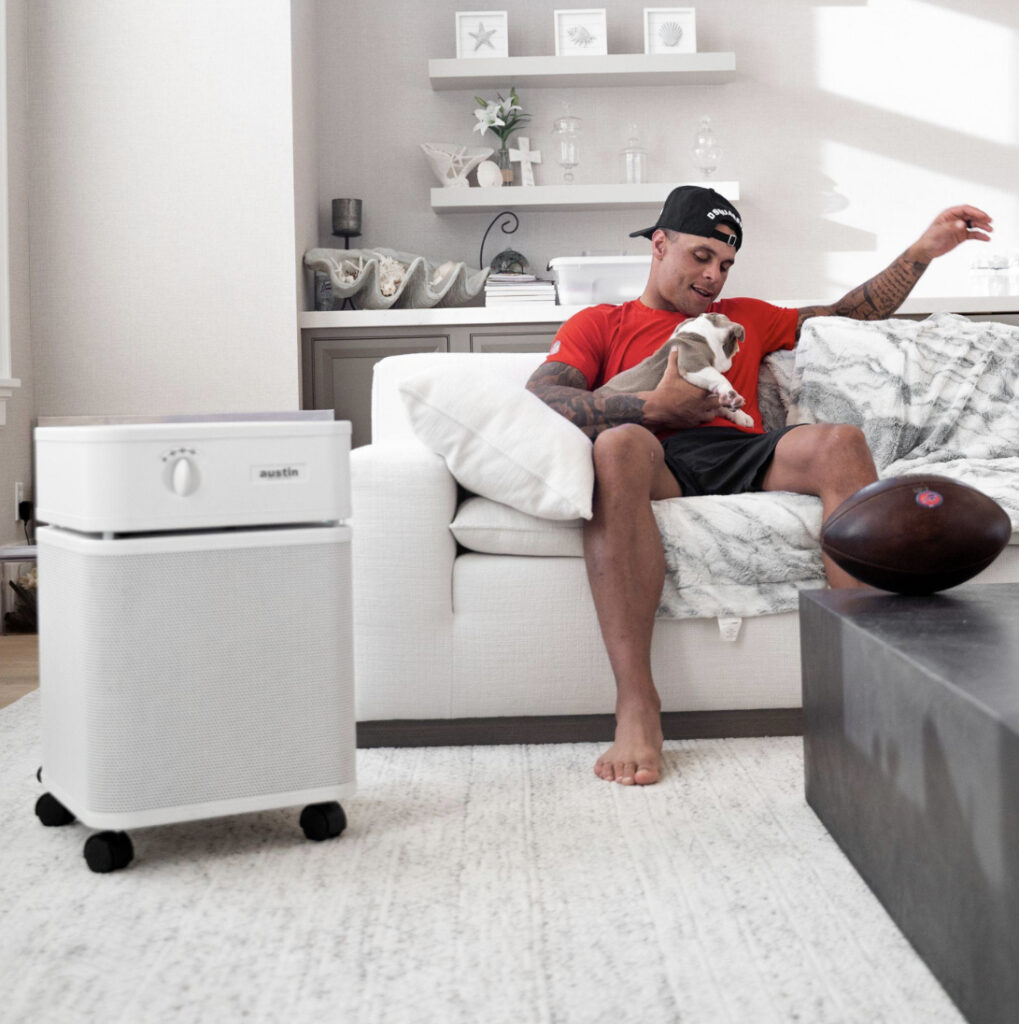
Regrettably, some organizations invested in these other ineffective systems, which did not clean the air adequately and even emitted harmful byproducts, increasing indoor air pollution. What’s more, some facilities managers were forced to hire additional staff to keep up with ongoing filter changes. Many of these units are now sitting in storage.
“Thankfully, the CDC, EPA, and WHO has developed guidance to help buyers,” McMillan adds. “Not surprisingly, each agency advised the use of portable HEPA air purifiers in schools, offices, and other public buildings.”
Many organizations have since followed this guidance, deploying Austin Air’s HEPA/carbon systems to help facilitate a safer return to in-person work and school.
“Nothing did more for the psychology of returning to work than the Austin Air purifiers,” said John Moshides, President of Moshides Financial Group, Inc. in Amherst, NY.
For some companies, this guidance doesn’t come as a surprise. Kenneth Adams, President of Yellow Van Cleaning and Restoration in Kearney, NE has been running Austin Air systems 24/7 for 15 years. “As a mold remediator and contract cleaner….I have consulted and evaluated hundreds of work environments, and the best machine for the greatest benefit of reducing measurable particulates is the Austin Air machine…”
Because the company has outperformed more than 100 other air purifiers in government tests, Austin Air has worked with FEMA and the American Red Cross during some of America’s most challenging times (including 9-11, Hurricane Katrina, Hurricane Sandy, and the 2015 SoCal gas leak in California).
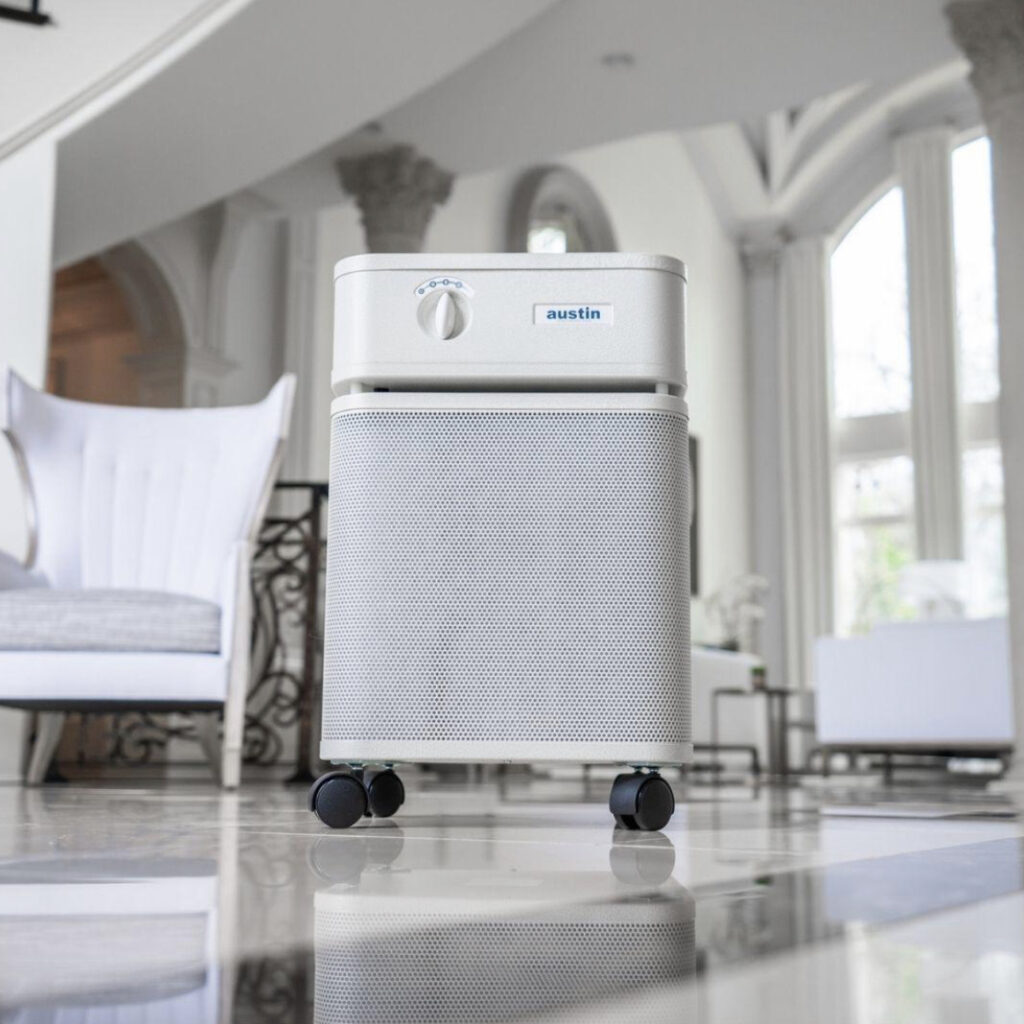
The Austin Air Partnership Program
Organizations aren’t just purchasing units from Austin Air, either. They’re also forming integrated partnerships with the original air cleaning pioneer. These companies are enjoying special partner-only incentives – some of which can be extended to staff through employee benefits programs.
“At Pegula Sports and Entertainment, we are always focused on providing additional ways that our teammates and our athletes can become the best version of themselves,” said Dan Misko, Sr. Vice President of Business Development at PSE. “While that has been evidenced by investments in training centers, sports performance modalities, and employee programs, it has also been complimented by our partnership with Austin Air. Our teammates and our athletes have been able to take advantage of the Austin Air technology to provide clean air for them both at work and at home. Austin Air has been an incredible partner and has made the ordering, delivery, and installation of this technology seamless for all of our team members. More and more Pegula Sports and Entertainment team members are enjoying safer, cleaner air as a result of this great partnership.”
Last year, Austin Air Systems partnered with the Buffalo Bills and Buffalo Sabres to bring clean air to their players and staff. The company has also teamed up with individual professional athletes, such as Jordan Poyer, among many others.
What’s more, Austin Air is the only air cleaning company to partner with research organizations to conduct clinical trials on their products. These include Johns Hopkins University, the American Academy of Pediatrics, Cincinnati Children’s Hospital, the University of Washington, and Franklin W. Olin College of Engineering.
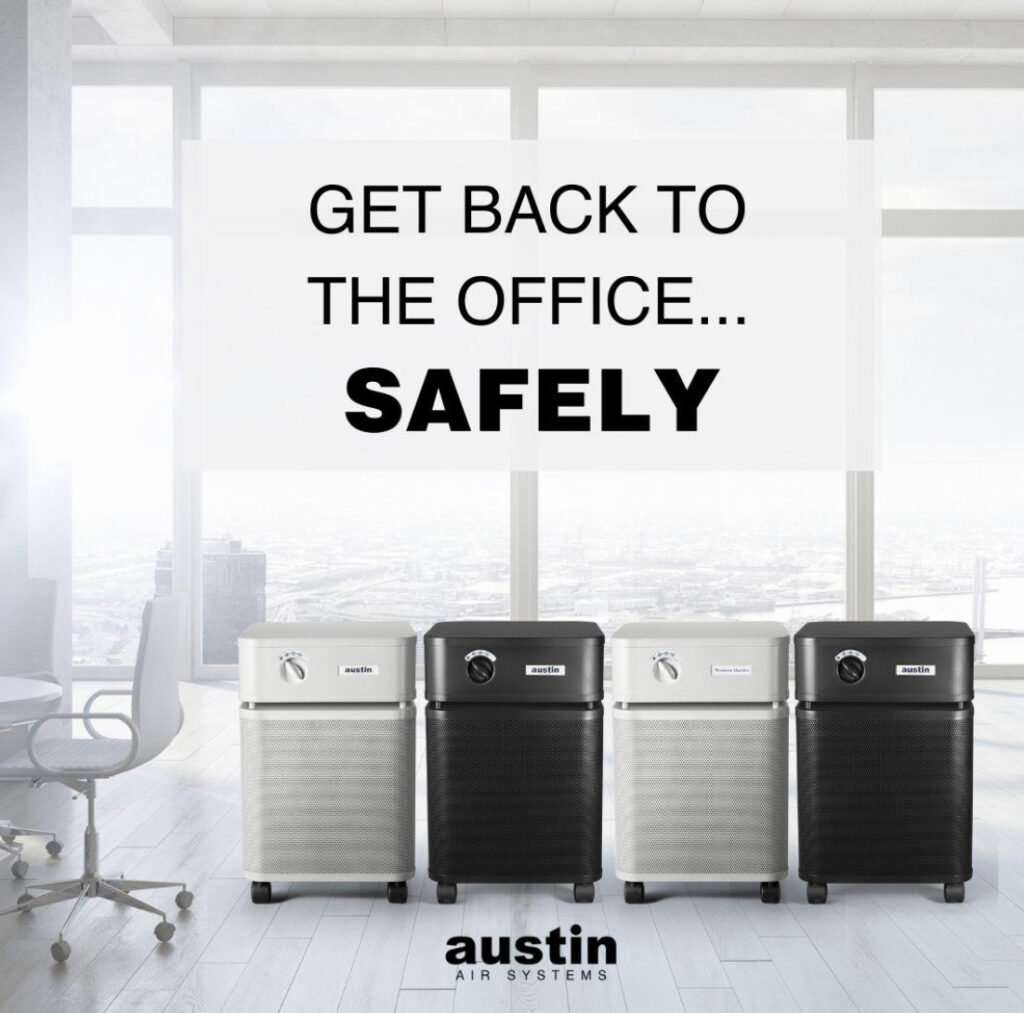
Most recently, Austin Air has partnered with Erie County, New York to put medical grade HEPA air purifiers in 11,000 classrooms. Austin Air has also contracted with the Canadian government in the province of Ontario to supply more than 40,000 units to schools across Canada, effectively protecting close to 1 million Canadian school children. Austin Air is sold in more than 100 other countries, too, and maintains the largest air cleaner manufacturing facility in the world, at 480,000 square feet – all in Buffalo, New York.


























